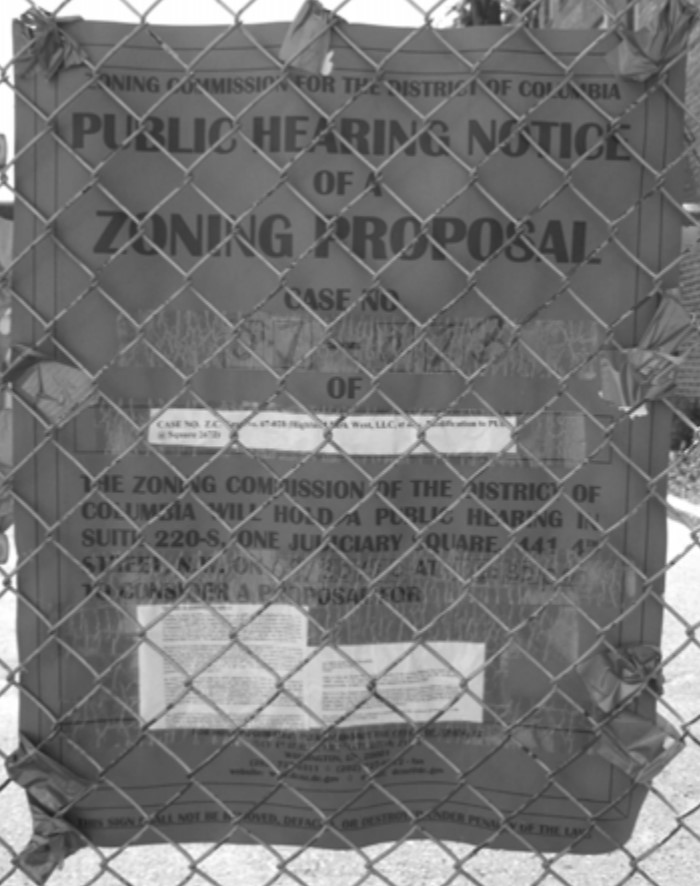This winter in Washington, there may be one less shelter available to homeless people in search of a bed.
In the midst of drawing up the annual winter plan designed to keep homeless people from freezing to death, city officials and homeless advocates are grappling with the possibility that La Casa shelter, one of the few bilingual low-barrier overnight shelters in the District, could soon close.
Each year, the city’s Interagency Council on Homelessness (ICH) develops a winter plan that lays out how local human service agencies and organizations will meet their obligations to protect homeless people from life-threatening winter weather. A hypothermia hotline is set up, outreach workers distribute blankets and vans are deployed to get people to safety. Hundreds of additional cold weather beds are set up in churches, shelters and other facilities.
The recession and a growing homeless population have added to the usual challenges this year. The annual homeless count, conducted last January found 6,529 homeless people in the District, a 5 percent increase over 2009. Some pressure on the shelter system has been relieved by the fact that over the past two years, roughly 1,000 homeless people have been moved from shelters to apartments and provided with social services through a permanent supportive housing program championed by Mayor Adrian Fenty. Calculating these factors against shelter use last winter, ICH planners say they expect to need more beds this winter: 1,446 for men, 431 for women and 350 living units for families for the coming winter.
The possible closing of La Casa, in the wake of the construction of a new residential development project, is making their planning process more difficult. Located on the 1400 block of Irving Street NW, the aging brick LaCasa facility with its fading murals and rows of weathered trailers behind a chain link fence appears out of place these days in the rapidly gentrifying Columbia Heights neighborhood.
All around the old shelter rise big new national retail stores and sleek apartment projects. Yet currently 72 homeless men are bunked in the trailers. And according to one version of the draft winter plan, an additional 75 hypothermia beds will be provided at the facility.
“We’re operating under the premise that we will be open,” said Glen Rother, acting program director for La Casa, which is operated for the city by the Coalition for the Homeless of Washington, D.C.
But posters taped to the walls and chain link fence outside the shelter speak of an uncertain future. The posters advertise a September 30 zoning commission hearing to discuss a request by developers to build 143 apartment units on the site, up from the 69 units already approved. The new apartments would be built as an addition to the Highland Park mixed-use residential and commercial development already rising right next door to the shelter. Whether or not the 143 apartments win approval from the zoning officials, the ultimate scheduling of the project at the La Casa site is “up to the developer,” a zoning spokeswoman said.
The developer, Bethesda-based Donatelli Development, Inc. did not respond to questions from Street Sense about the progress of the project.
La Casa shelter, which offers services in both English and Spanish fills a deep need and will not be easily replaced. Homeless people often try to stay in familiar surroundings and emergency shelter space has been at a premium in that neighborhood, said Chapman Todd, who is division director for program operations at Catholic Charities and who serves on the ICH.
“There has been no area more pressed in recent years than Mount Pleasant/ Columbia Heights,” Todd said. “The loss of capacity in that neighborhood without a replacement of those beds is a unique challenge.”
If La Casa closes, the department is preparing to provide an additional 85 slots in permanent supportive housing, according to Laura Green Zeilinger, deputy director for program operations at the D.C. Department of Human Services.
“If we do not have La Casa (the plan) is not to replace shelter with more shelter, “said Zeilinger. “We are creating 85 housing opportunities.” Another 75 men could be shifted to beds set up in the cafeteria of the closed D.C. General Hospital, she said. “If we don’t have La Casa we’ll use the D.C. General cafeteria as our overflow space,” she said.
Even with the prospect of the addition of permanent supportive housing units, some advocates have expressed worry at the idea of losing beds in the city’s emergency shelter system, particularly in Northwest Washington.
“I’m concerned there is no sufficient backup plan if La Casa goes off line,” said Scott McNeilly, staff attorney for the Washington Legal Clinic for the Homeless, and a member of the ICH. “We need to think about a building in that area.”
And Robin Brown, program coordinator at the Harriet Tubman Women’s Shelter said she was concerned that dedicating the D.C. General cafeteria to overflow beds for men could be hard on women. In the past, women have found refuge from the cold in the D.C. General cafeteria after being turned away from other shelters.
“I see a lot of turnaways for the women,” said Brown.
And as in previous years, finding space for homeless families remains a concern. Last winter, up to 200 homeless families were housed in rooms at D.C. General Hospital. And needs have steadily increased since then. Between April and June, 517 families applied for shelter, according to figures compiled by the ICH.
Work on the winter plan will continue. “This document is still very much a draft,” said Todd.
Final approval is scheduled for a meeting of the Interagency Council on Homelessness to be held at 11 a.m. on September 23 at Miriam’s Kitchen, 2401 Virginia Avenue, NW.








